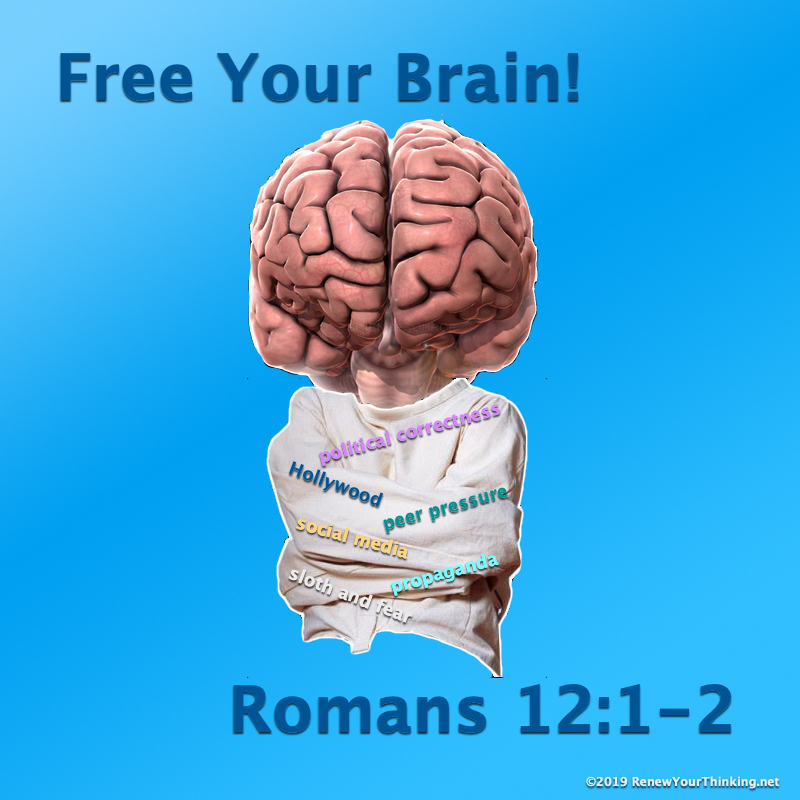
The Example of Apollos
In the first essay in this series we began by examining the context for Paul’s command to us to renew our minds.
We saw that this command came at the end of the first 11 chapters of the Book of Romans. These first 11 chapters are Paul’s formal teaching on doctrine, and as he often does in his letters, this formal teaching is followed by practical application in the life of his readers.
Paul makes the point that because of the great mercy shown to us by God we should now engage in a life long process of changing the way we think and act in this world.
So here we have the pattern laid out for us. The Holy Spirit is put in us by God and we are regenerated. We then begin the life long process of sanctifying our lives and our thinking. We do this, not because we think we can get God in our debt so that He must bless us and let us into heaven when we die. We do the hard work because we are thankful for the grace and mercy He has shown us in Christ.
So let’s look at a Biblical example of this process in action in the life of the believer Apollos.
Apollos
The Bible gives us many examples of men and women who were wise both in their knowledge of the day, as well as in their application of God’s Word to their life and culture.
For example, we can look at Moses who was “instructed in all the wisdom of the Egyptians” (Acts. 7:22). God then took him through a 40 year course in thinking, followed by a 40 year course of application as he led the Israelites through the wilderness.
Daniel, Shadrach, Meschach, and Abednego were all educated and gifted young men who were taught the language and literature of the Chaldeans (Dan. 1:4), and were subsequently used mightily by God because of their knowledge and ability to think.
Paul was “educated at the feet of Gamaliel” (Acts 22:3), who conducted the most distinguished academy in first-century Jerusalem. Paul then had to be re-educated by God so that he could lead the early church. Many other examples could be cited.
But one man in particular is a good example of the process we all undergo to renew our minds. He can be found in the book of Acts, chapter 18, beginning at verse 24:
“Now a certain Jew named Apollos, born at Alexandria, an eloquent man and mighty in the Scriptures, came to Ephesus. This man had been instructed in the way of the Lord; and being fervent in spirit, he spoke and taught accurately the things of the Lord, though he knew only the baptism of John. So he began to speak boldly in the synagogue. When Aquila and Priscilla heard him, they took him aside and explained to him the way of God more accurately. And when he desired to cross to Achaia, the brethren wrote, exhorting the disciples to receive him; and when he arrived, he greatly helped those who had believed through grace; for he vigorously refuted the Jews publicly, showing from the Scriptures that Jesus is the Christ.”
Note a couple of things we are told in these verses. We are told that Apollos was from the Egyptian city of Alexandria. Alexandria was famous for one of the Eight Wonders of the ancient world, the great library that was the most famous in all that era. Associated with this library was a museum, but this museum was not like our museums. It was something that was the equivalent of our present university.
Because of these institutions Alexandria was the premier center of Greco-Roman thought and learning. Many of its citizens were well educated in the classical culture of the day. Apollos was no exception.
Note that Apollos is described as an “eloquent man.” In other words, he could speak well before crowds. It seems reasonable to assume that he must have been trained in the rhetoric and dialectic for which Alexandria and its museum were famous. He was a man steeped in the education and culture of his day.
Judging by his Greek name he must have been a convert to Judaism. We are also told that he only knew of the baptism of John. Apollos knew of the forerunner to our Lord, and he knew of John’s baptism of repentance from dead works. But he did not know that Messiah had come. He knew the way (the path, the conduct), the water baptism (repent, expect) but did not know Messiah (grace).
We can conclude that at some point God put His Holy Spirit into the man and began the journey that results in Apollos being born again. This regeneration then began the process of renewal in mind and life that all Christians must undergo.
Was the process successful? As far as it went, yes it was. Note that Apollos was competent enough in his knowledge and application of the Old Testament to successfully argue with the Jewish leaders of his day.
But he did not know it all. He did not have a complete understanding of the Gospel, but only knew of John’s baptism. But please note that what he did know and understand he taught boldly and accurately.
Fortunately for him when Aquila and Priscilla heard him and realized his deficient knowledge. We are told that they took him aside and explained to him the way of God more accurately. Fortunately Apollos was not too proud to hear what they had to teach him. He was willing to be further renewed in his thinking, and thus be more useful in God’s kingdom.
Note that he ends up being a great asset in the spread of the Gospel and the defense of the faith against Jewish opposition. But more than just that, Paul makes several interesting comments about this man in his first letter to the Corinthians.
His influence grew so much that when the Church in Corinth began having troubles some there claimed to be “of Apollos” (1Cor. 1:12). Paul mentions Apollos six more times in that letter (3:4, 5, 6,22; 4:6), and especially note 16:12 in which we can see that Paul thought very highly of the work of this man.
So here we have a man who was educated in the culture of his day, who had converted to Judaism and studied the Old Testament until he could refute the Jews of his day and show them Christ. Yet despite this knowledge and skill he was still not too proud to be corrected and thus increase his knowledge and usefulness in God’s kingdom. The result is a man used mightily by God in the early days of a very troublesome church.
this is the Biblical pattern we all must follow. Once we are regenerated the work just begins. We are called to spend the rest of our lives sanctifying both our words, our deeds, and our thoughts.
As we shall see in our next essay, sadly, this is not always the case for Christians.


